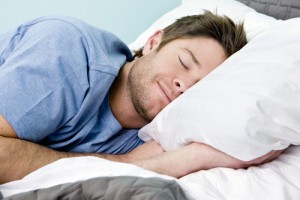Dreams are an important source of information from the unconscious in a depth psychological approach such as Jungian analysis. Most dreams occur during REM (rapid eye movement) sleep, one of the stages of the sleep architecture. As sleep progresses, the periods of REM sleep grow longer, lasting up to 90 minutes at the 7-hour mark. Therefore, for the sake of your analysis as well as your health, it is wise on your part to engage in the practices that will optimize your sleep length and quality. Below you will find a set of guidelines from the Stanford University Sleep Laboratory of Dement and his associates.
1. Sleep only when sleepy. (This reduces the time you are awake in bed.)
2. If you can’t fall asleep within 20 minutes, get up and do something boring until you feel sleepy. (Sit quietly in the dark or read the warranty on your refrigerator. Don’t expose yourself to bright light while you are up. The light gives cues to your brain that it is time wake up.)
3. Don’t take naps. (This will ensure that you are tired at bedtime. If you can’t make it through the day without a nap, sleep less than one hour, before 3 pm.)
4. Get up and go to bed the same time every day. (Even on weekends! When your sleep cycle has a regular rhythm, you will feel better.)
5. Refrain from exercise at least 4 hours before bedtime. (Regular exercise is recommended to help you sleep well, but the timing of the workout is important. Exercising in the morning or early afternoon will not interfere with your sleep.)
6. Develop sleep rituals. (It is important to give your body cues that it is time to slow down and sleep. Listen to relaxing music, read something soothing for 15 minutes, have a cup of caffeine free tea, do relaxation exercises.)
7. Only use your bed for sleep. (Refrain from using your bed to watch TV, pay bills, do work or reading. So when you go to bed your body knows it is time to sleep. Sex is the only exception.)
8. Stay away from caffeine, nicotine and alcohol at least 4-6 hours before bed. (Caffeine and nicotine are stimulants that interfere with your ability to fall asleep. Coffee, tea, cola, cocoa, chocolate and some prescription and non-prescription drugs contain caffeine. Cigarettes and some drugs contain nicotine. Alcohol may seem to help you sleep in the beginning as it slows brain activity, but you end up having fragmented sleep.)
9. Have a light snack before bed. (If your stomach is too empty, that can interfere with sleep. However, if you eat a heavy meal before bedtime, that can interfere as well. Dairy products and turkey contain tryptophan, which acts as a natural sleep inducer. Tryptophan is probably why a warm glass of milk is sometimes recommended.)
10. Take a hot bath 90 minutes before bedtime. (A hot bath will raise your body temperature, but is is the drop in body temperature that may leave your feeling sleepy.
Tips from the journal Sleep about the significance in body temperature about sleep.
Make sure your bed and bedroom are quiet and comfortable.
A cooler room along with enough blankets to stay warm is recommended.
If light in the early morning bothers you, get a blackout shade or wear a slumber mask.
If noise bothers you, wear earplugs or get a “white noise” machine.
Use sunlight to set your biological clock.

